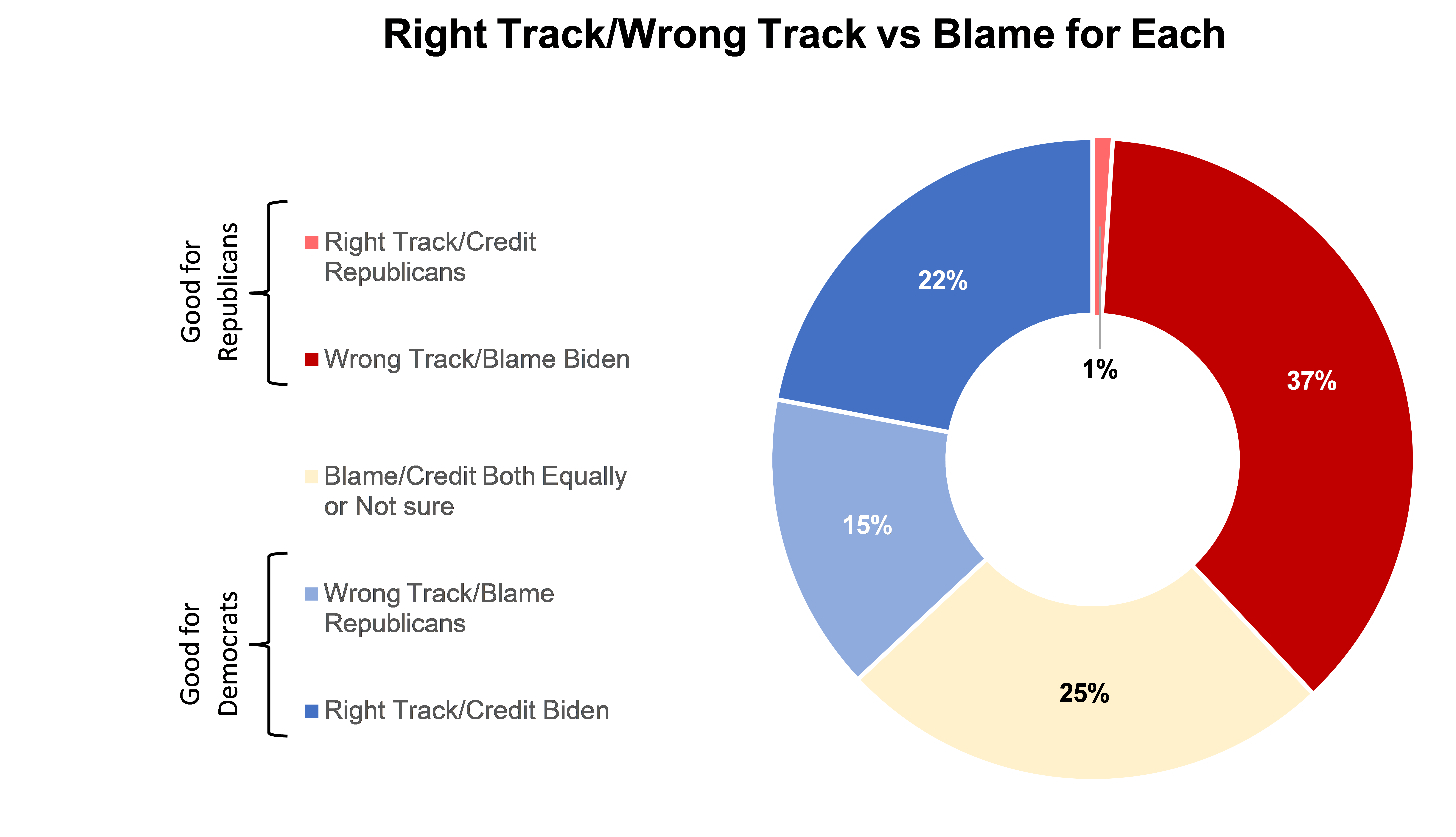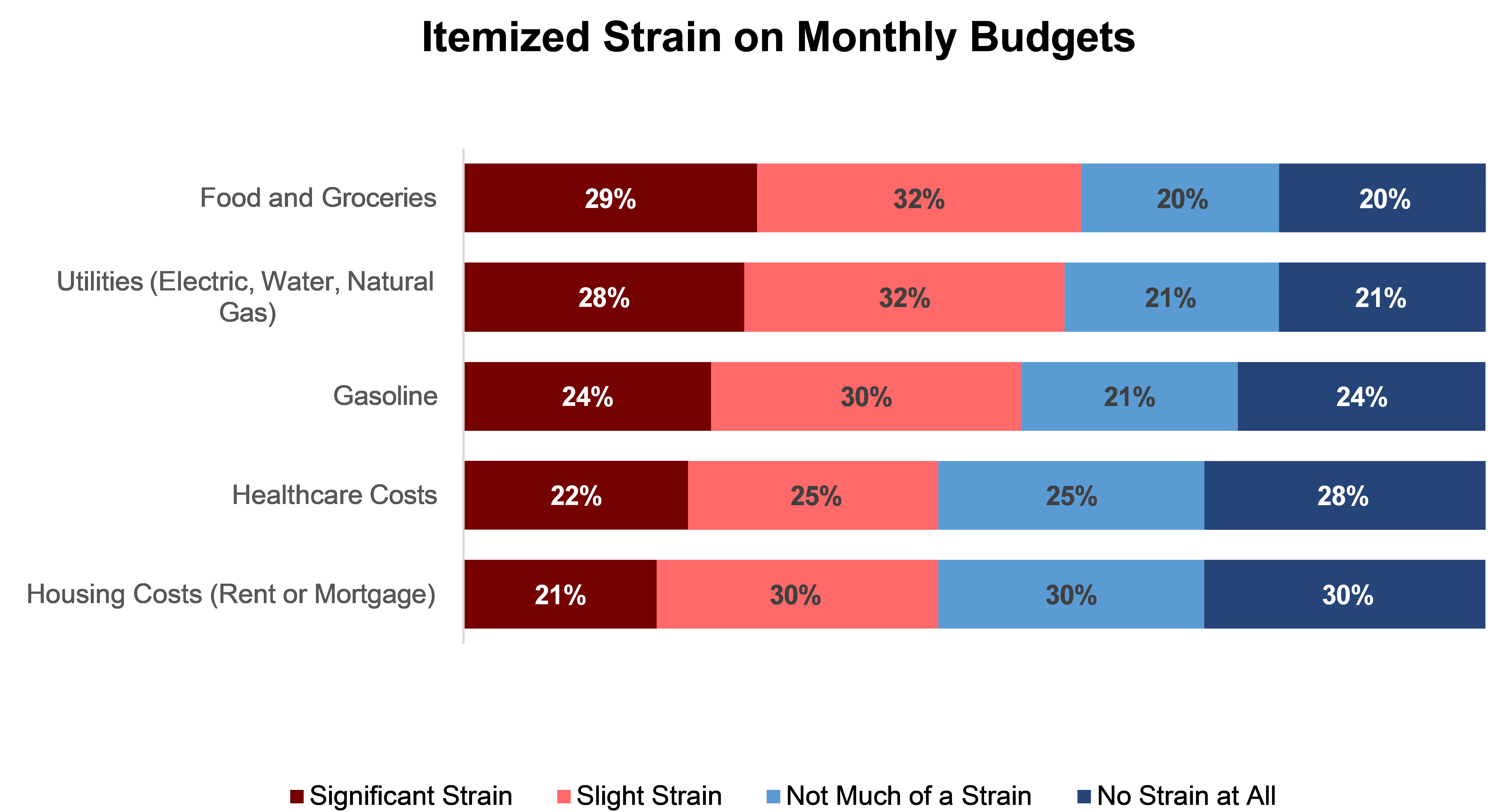A new national poll by independent political research firm American Strategies finds that 72 percent of registered voters in the United States say that things have gotten off on the wrong track, while just 28 percent say things are going on the right track. Despite agreement on the country’s negative trajectory, a follow-up question asking who is to blame for the country’s state of affairs shows a partisan divide:
-
- Fifty-two percent of registered voters who say things have gotten off on the wrong track blame Joe Biden and the Democrats, while 21 percent blame Donald Trump and the Republicans, and 24 percent blame both parties equally.
-
- Among right track voters, 78 percent give credit to Joe Biden and the Democrats in Congress, while four percent credit Republicans in Congress, and 18 percent are either not sure or credit both parties equally.
-
- Wrong track numbers are often considered a mark against the incumbent, but the data suggest that the overall sentiment of the country is divided. Thirty-eight percent of all voters either blame Democrats for things going poorly or credit Republicans with things going well. Thirty-seven percent either credit Democrats for things going well or blame Republicans for the country being on the wrong track (See graph below).

American voters are also down on the economy. Over three-quarters say that economic conditions are either poor (35 percent) or only fair (41 percent). Just one-quarter (25 percent) say that economic conditions in the United States are either excellent (four percent) or good (21 percent).
When it comes to household monthly budgets, voters say food/groceries and utilities pose a significant or slight strain on their monthly budget (61 percent and 60 percent respectively). Overall 51 percent of registered voters say their housing costs generate a significant or slight strain on their monthly budget. When examined by homeownership status, data shows renters are experiencing the worst effects: 75 percent say that their rent payments create either significant (36 percent) or slight (39 percent) strain. Homeowners, on the other hand, are somewhat less challenged, with 41 percent saying their mortgage is a significant strain (15 percent) or slight (26 percent) strain.

Turning to the 2024 election, 61 percent of voters say they are extremely motivated to vote, with a further 21 percent who say they are very motivated to turn out for the presidential race and 11 percent who say they are somewhat motivated to vote. Just eight percent say they are not too motivated to vote in 2024. Those who say they are extremely, very, or somewhat motivated to vote in the 2024 election were asked to name their number-one motivator to vote in their own words; trends among these responses include the following:
- 21 percent say their number-one motivator is to vote for competent leadership.
- 18 percent say their motive is to prevent Trump/Republicans from winning the election.
- 13 percent say their motive is to remove Biden/Democrats from office.
- 13 percent say their motive is to be a part of positive change.
Among those who say they are not too motivated to vote, 48 percent say they lack motivation due to their distaste or distrust of the candidates, while a further 16 percent lack faith in government generally and 14 percent believe their vote doesn’t matter.
Finally, voters were asked about nuclear energy in the United States, where 58 percent are either strongly (19 percent) or somewhat in favor (39 percent) of increasing nuclear energy production. Forty-two percent are in opposition overall, with 12 percent strongly opposed. Despite positive attitudes toward nuclear energy, a majority of voters (52 percent) say they would only feel comfortable living over 100 miles from a nuclear power plant.
American Strategies designed and administered this survey using panel respondents provided by a third- party vendor. Respondents were randomly selected for participation and screened for voter registration status. Responses were collected between November 14th and November 27th, 2023. One-thousand nineteen responses were collected, yielding a margin of error of three percent.
